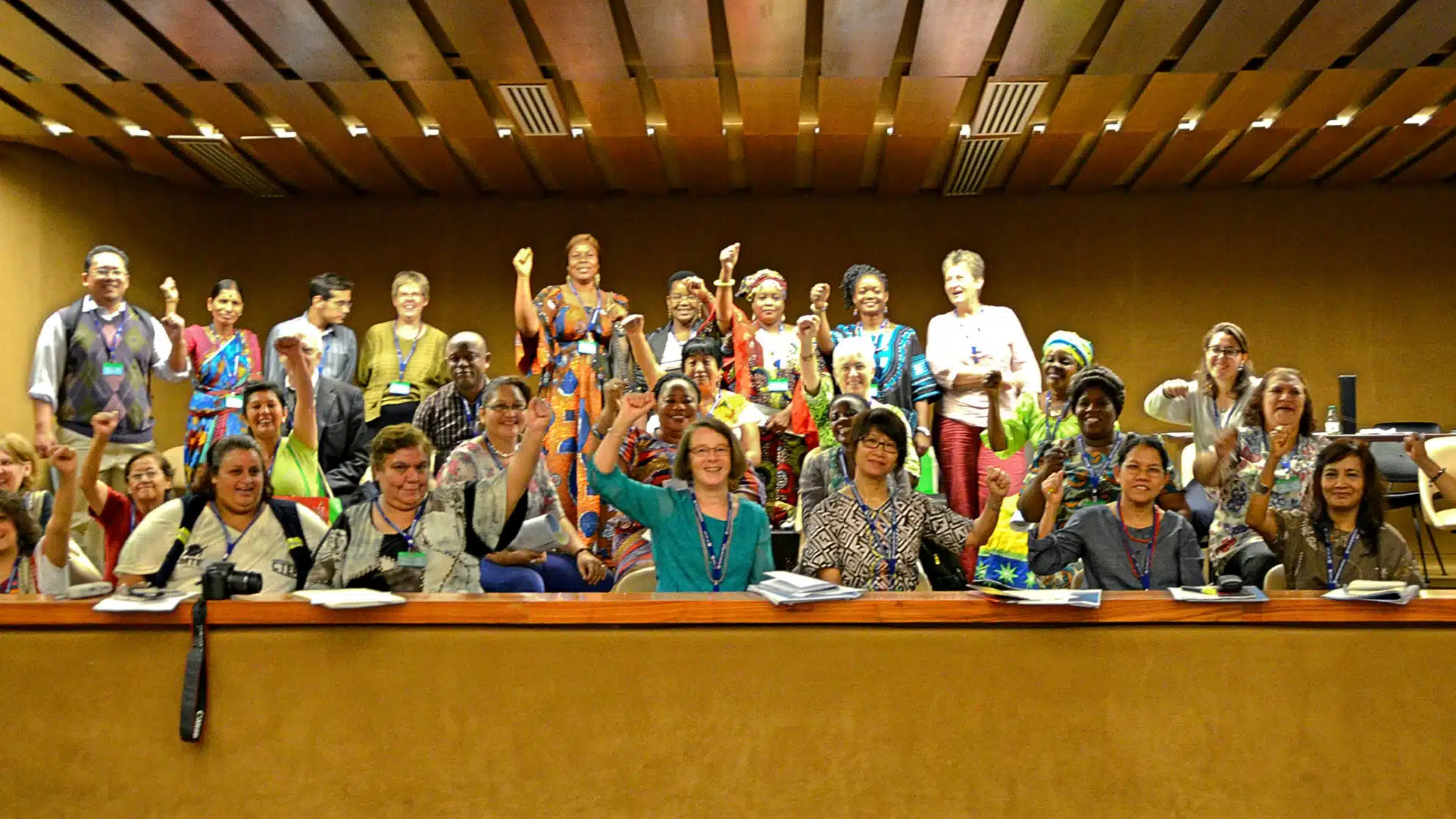For 25 years, WIEGO and its allies have helped informal workers voice their issues at the International Labour Conference (ILC)—which influenced the creation of international instruments that can improve informal workers’ lives and livelihoods.
Government officials, trade union representatives and employers’ associations from 187 countries gather every year in Geneva for the International Labour Conference (ILC). This tripartite “parliament of labour” has been setting standards for the world of work since 1919—but only in the last 25 years have informal economy workers been part of the agenda. It’s been an uphill battle, but with the help of WIEGO and our allies, informal workers have raised their voices and gained recognition in this international forum.
Here, seven strategies that helped achieve significant victories on this global stage.
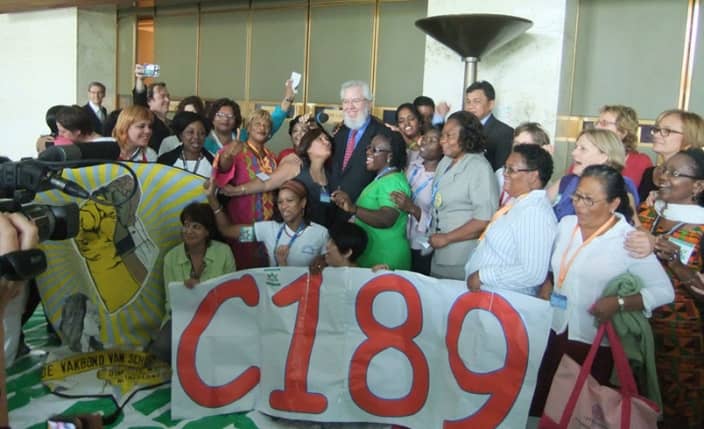
1. Determination is good—but data is gold
In 1995, the ILC agenda included home-based workers. That year, a group of like-minded women attended and strategized about how to win a Convention on Home Work in 1996. Among them were Ela Bhatt, founder of the Self-Employed Women’s Association (SEWA) in India, Marty Chen, a Harvard University lecturer, and Renana Jhabvala, National Coordinator of SEWA (these women would soon co-found WIEGO).
The global union IUF had accepted SEWA as a member—thus recognizing informal workers as workers in the ranks of trade unions—and came out in support of the Convention.
After Renana identified hard data as a missing piece in their strategy, Marty, Jennefer Sebstad and Lesley O'Connell created a statistical report on home-based women workers for the 1996 ILC.
Those numbers helped win the day. The Home Work Convention (ILO C177) and Recommendation 284 were adopted—and the seeds of WIEGO were sown. In 1997, WIEGO was founded.
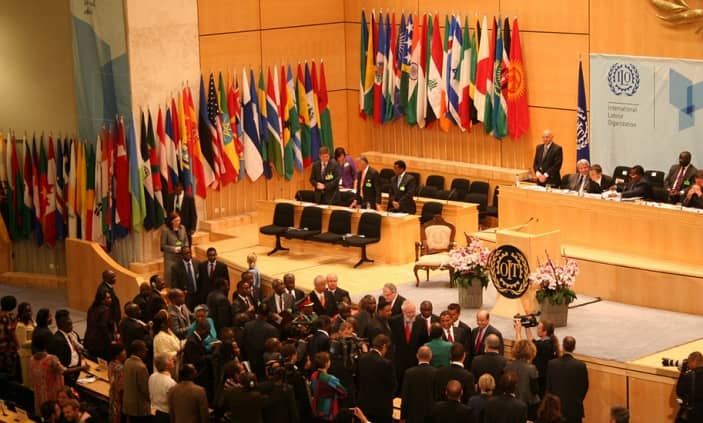
2. Be present—persistence pays off
At the ILC in 2002, WIEGO coordinated representatives from informal workers’ organizations. Most of them were not ILC participants or official delegates, only observers, but their presence had impact. The 2002 Conclusions on Decent Work and the Informal Economy recognized self-employed individuals as workers—a significant milestone in the fight for inclusion at the international level.
However, numerous obstacles remained. WIEGO persisted, sending small, unofficial delegations. Finally in 2009, WIEGO was deemed an official NGO observer—allowing us access to ILO supports and giving our delegations limited speaking rights.
Still, most informal workers were not represented by trade union delegations and weren’t typically welcomed into the Workers Group—which meant they couldn’t take part in discussions. WIEGO’s Karin Pape says trade unions often viewed informal workers as needing to be regulated—not represented. But persistence working with trade unions contributed to their acceptance of informal workers in their ranks. StreetNet International and the International Domestic Workers’ Federation (IDWF) are accepted as observer organizations in the Worker Group.
If I look at the ILC in 2002 and now, we moved mountains.
~ Karin Pape, Deputy Director of ORP for WIEGO
3. Forge alliances
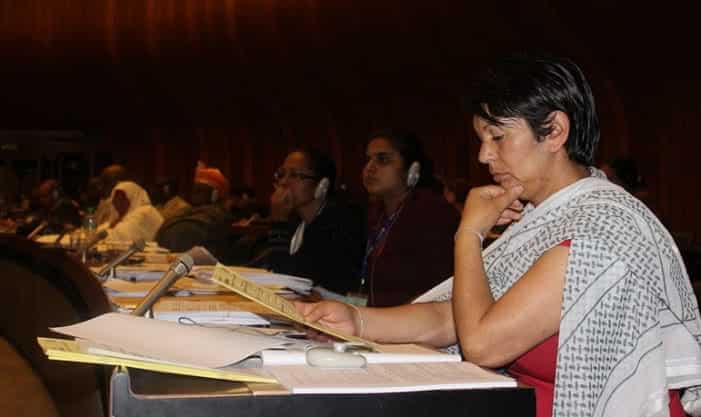
Strong alliances led to big victories. A partnership between WIEGO, the Global Labour Institute (GLI) and the IUF enabled domestic workers active engagement in negotiations of a Convention. Domestic workers representatives used the process to establish the International Domestic Workers Network (now the IDWF) in 2009. Across the next two years, this alliance campaigned for a Convention on Decent Work for Domestic Workers. In 2011, that Convention—C189—was adopted with overwhelming support.
Although the ILO recognized informal work, we didn’t have a clear space at the ILC.Our approach was to navigate, to find allies from within organized labour and governments.
~ Pat Horn, founding International Coordinator and now Advisor for StreetNet International
Over the years, other collaborations have brought gains to informal workers. For example, the Nordic Folk School in Geneva provides them space in its annual course; the Friedrich Ebert Foundation (FES) brings trade union coordinators to the ILO; and Justice and Peace, supported by Kolping International, has organized side events at which informal workers were expert speakers.
4. Support the participants—knowledge is power
The ILC can be an intimidating space. And for some workers, this marks the first time they have travelled outside their country. WIEGO provides coordinating, technical, financial, communications and translation support to ease the transition. It does this for its own delegation and others within the informal workers’ movement.
Having an impact at the ILC requires a deep understanding of a complex arena. It is crucial to understand what is on the agenda (see box) and know the rules. Those include where to sit, who can speak, and when. Seasoned members of our team help participants understand the technical language and be in the right place at the right time, prepared to participate.
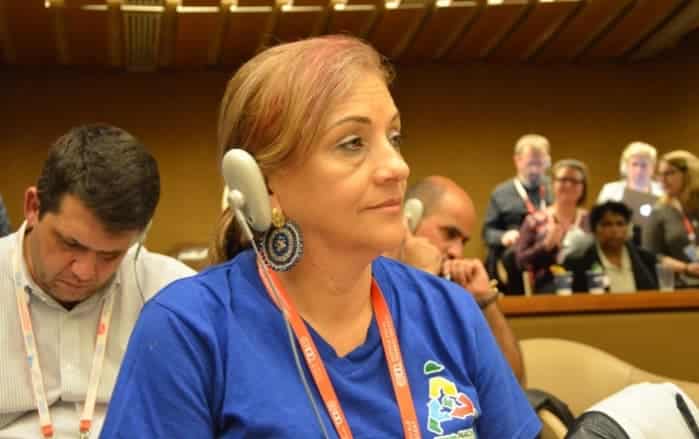
WIEGO is very good in orienting you—what you will face, what you will see at the ILC.
~ Poonsap Tulaphan, an advocate for informal workers across Asia and Manager of HomeNet Thailand
5. Prepare in advance—and all the way through
Being prepared with a global strategy can require months—even years—of advance work. Prior to the 2014 ILC, where the discussion would centre on formalizing the informal economy, WIEGO organized workshops in Johannesburg, Bangkok and Buenos Aires. At these regional workshops, informal workers formulated a Platform of Demands, which were circulated at the ILC along with Myths and Facts documents. Other delegates cited the materials to support their arguments.
The 2015 ILC adopted Recommendation 204 - Transition from the Informal to the Formal Economy Recommendation.
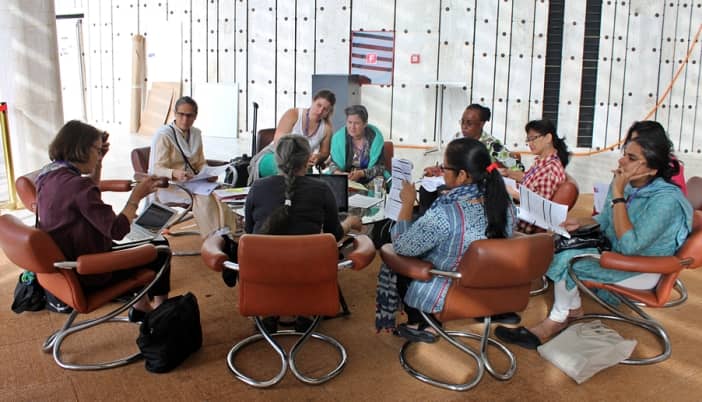
Preparatory meetings, held at the beginning of the ILC, ensure everyone is on the same page and understands their role. Early-morning and afternoon meetings and evening debriefs keep things on track. Official delegates and other NGO observers have asked (and been allowed) to join these sessions. This openness has broadened relationships with trade union delegates and other allies.
6. Make sure workers can speak for themselves
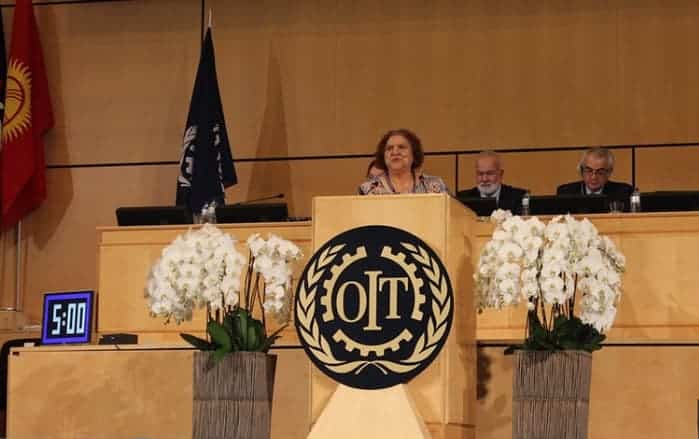
Official NGOs like WIEGO get only a few very brief speaking opportunities. In the WIEGO delegation, speeches are always made by informal worker representatives, selected through a collaborative process.
In 2016, Zehra Khan of the Home-Based Women Workers Federation of Pakistan addressed the ILC plenary session to highlight the realities of homeworkers in global supply chains. The Conclusions that came out of that conference recognized homeworkers in supply chains.
Informal workers’ speeches offer a grounded reality that needs to be heard by those deciding on international standards. In 2019, when the ILC discussed the Convention on Ending Violence and Harassment in the World of Work, SEWA’s Sonia George spoke about the experiences of poor women workers. StreetNet International President Lorraine Sibanda articulated how those who work in public spaces have little protection from harassment by authorities.
Those speeches raise organizations’ profiles and lead to more opportunities. For example, Sibanda later spoke at an ILO African Regional Meeting. And ILC participation empowers informal worker leaders. They gain leadership and negotiating skills and confidence—tools that serve them as they strive to bring the victories home to their countries.
7. Maintain momentum and support implementation
Victory at the ILC does not immediately change workers’ lives. A Convention does not bind a country until its national government ratifies it. However, it can be a powerful political tool.

But once home, informal worker leaders are embroiled in day-to-day demands and face obstacles in motivating their governments to implement better labour standards. WIEGO continues to provide support, information and tools:
- Although the Home Work Convention came into force more than two decades ago, few countries have ratified C177. And ratification does not always mean implementation. WIEGO Teams helped a Bulgarian trade union of self-employed and informal workers use ILO reporting mechanisms to hold its government accountable for commitments under C177.
- After the ILC in 2015, we developed a clear summary of R204. In South Africa, pressure from informal workers is propelling the implemention and fair formalization. This could be a model for other countries. WIEGO plays a support role, advising a National Task Team and hosting public forums.
- WIEGO and the IDWF created a toolkit on ILO Convention C189 and hold workshops for domestic workers on making C189 a reality.
Informal workers have fought an uphill battle to win recognition at the ILC. Much has been achieved; much more remains to be done. This work is vital—and it is challenging, requiring significant time, energy and resources.
RELATED: In 2021, WIEGO is again supporting informal workers at the ILC. On the agenda: Extending Social Protection to Women and Men in the Informal Economy
